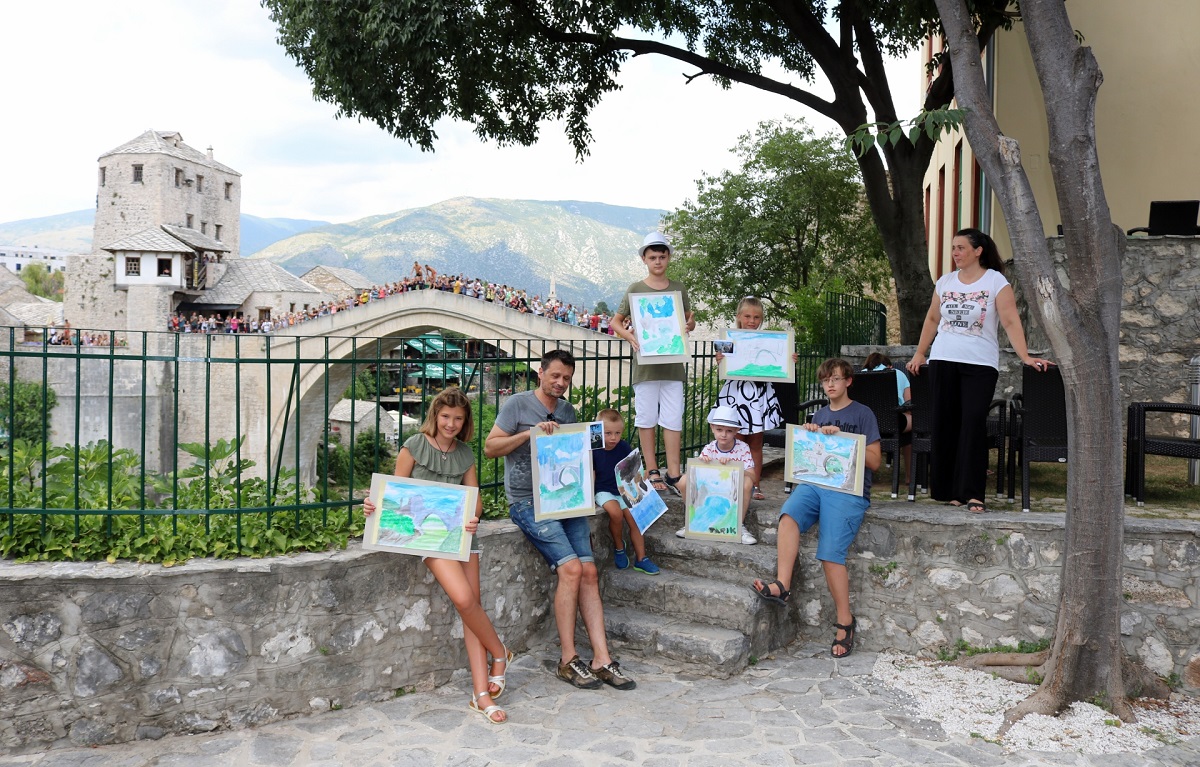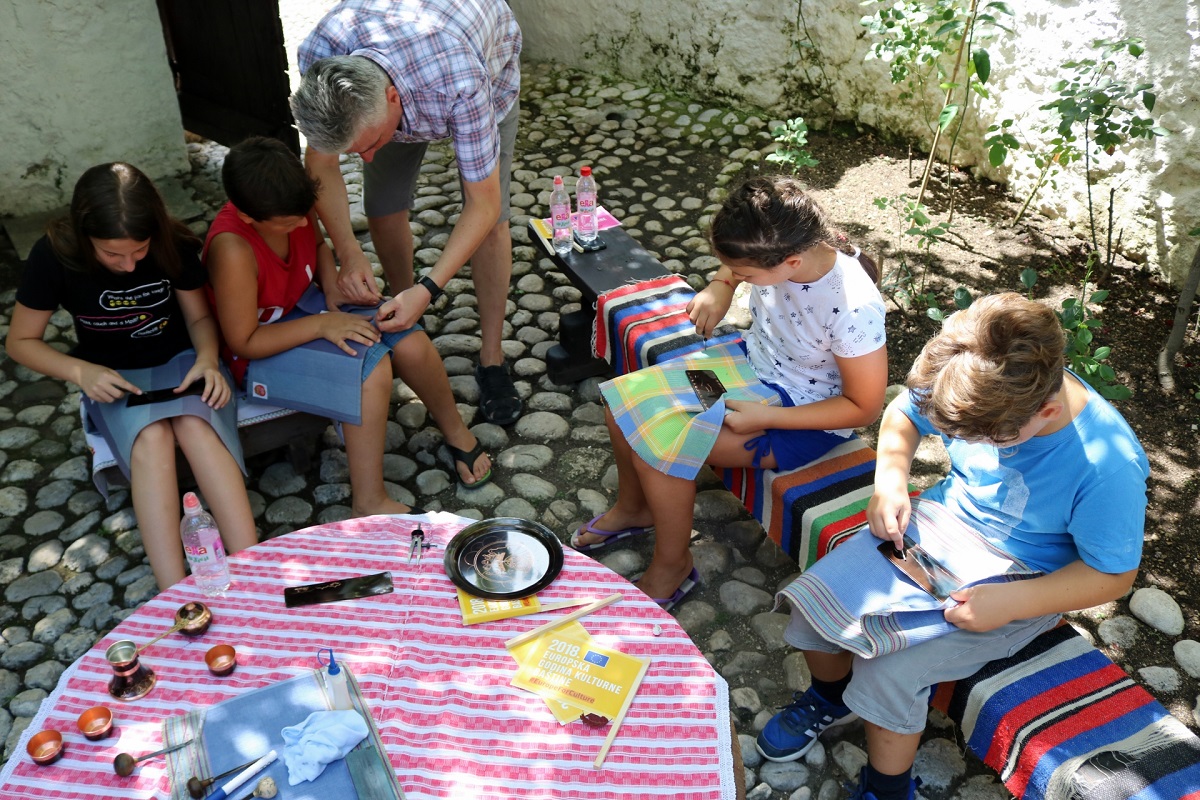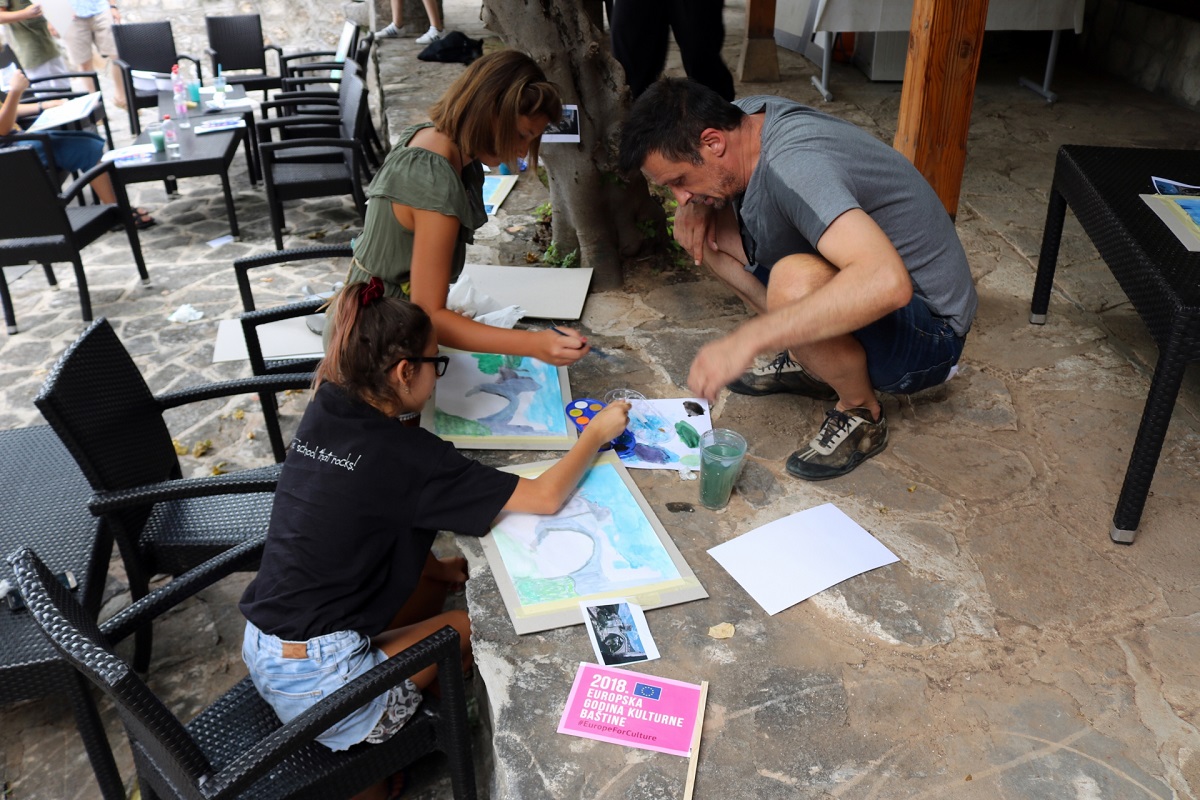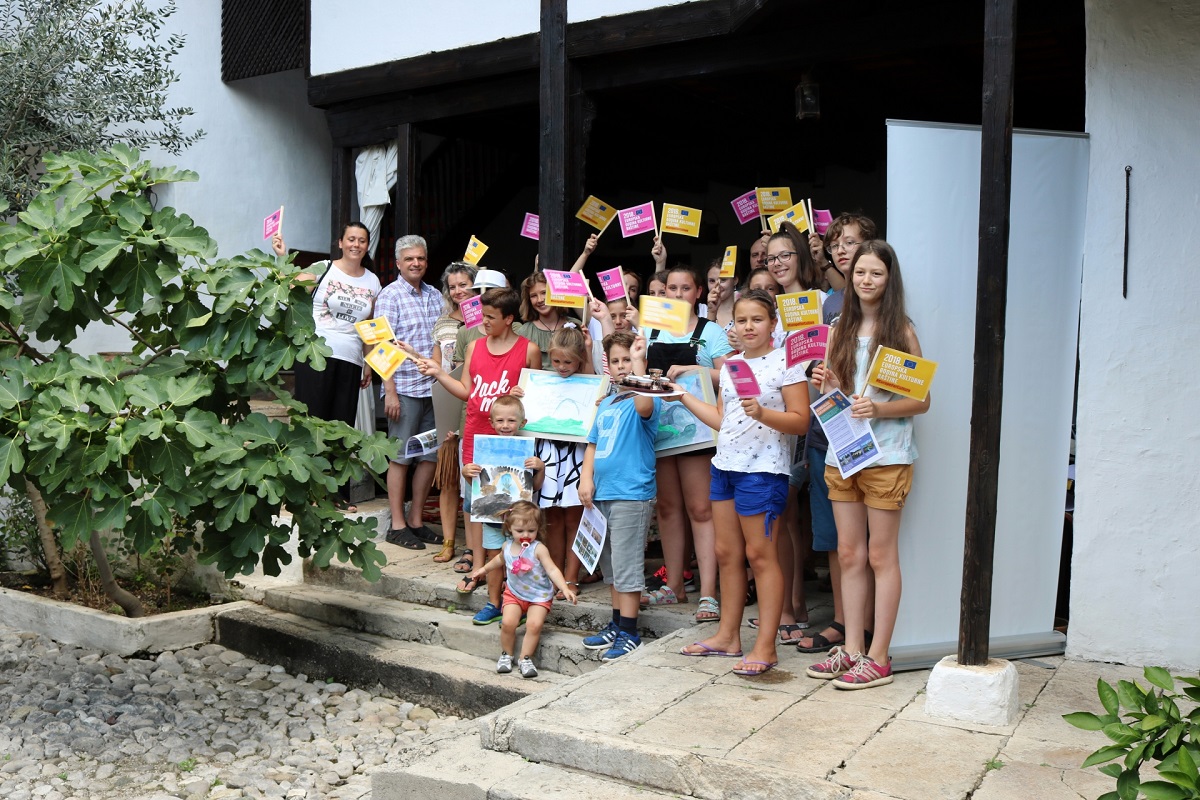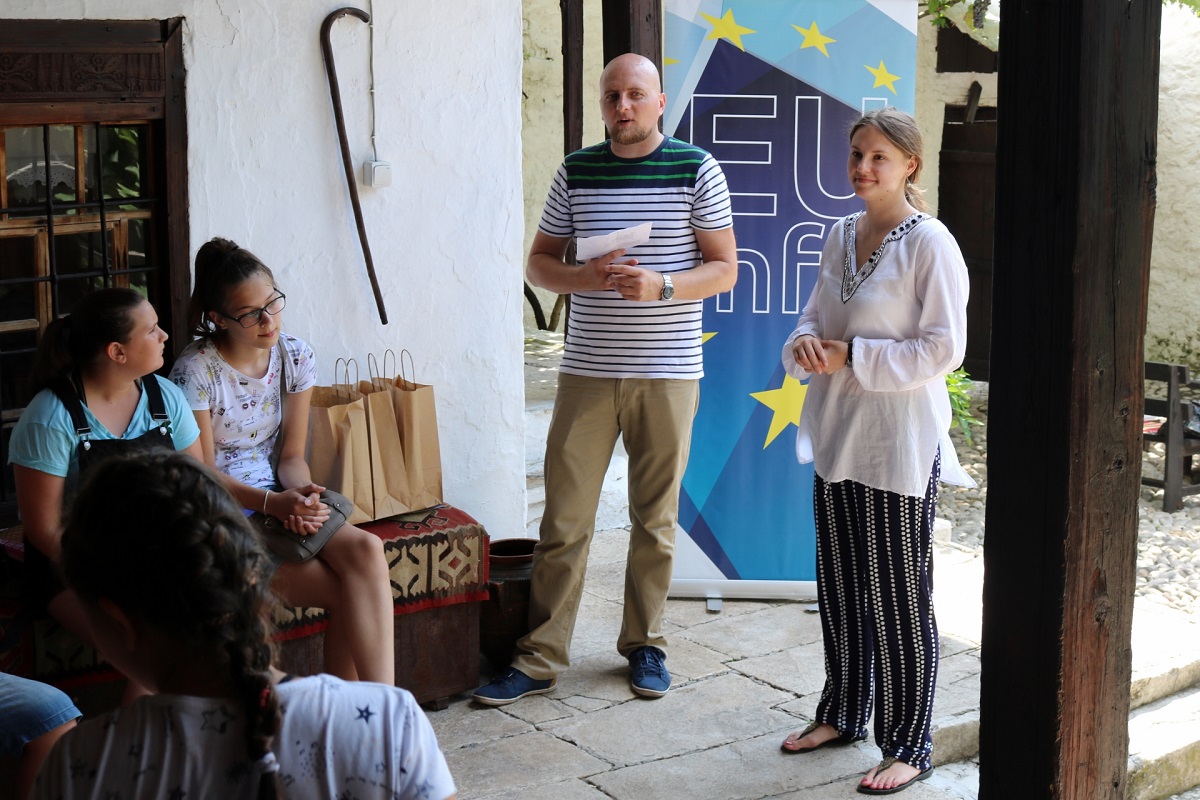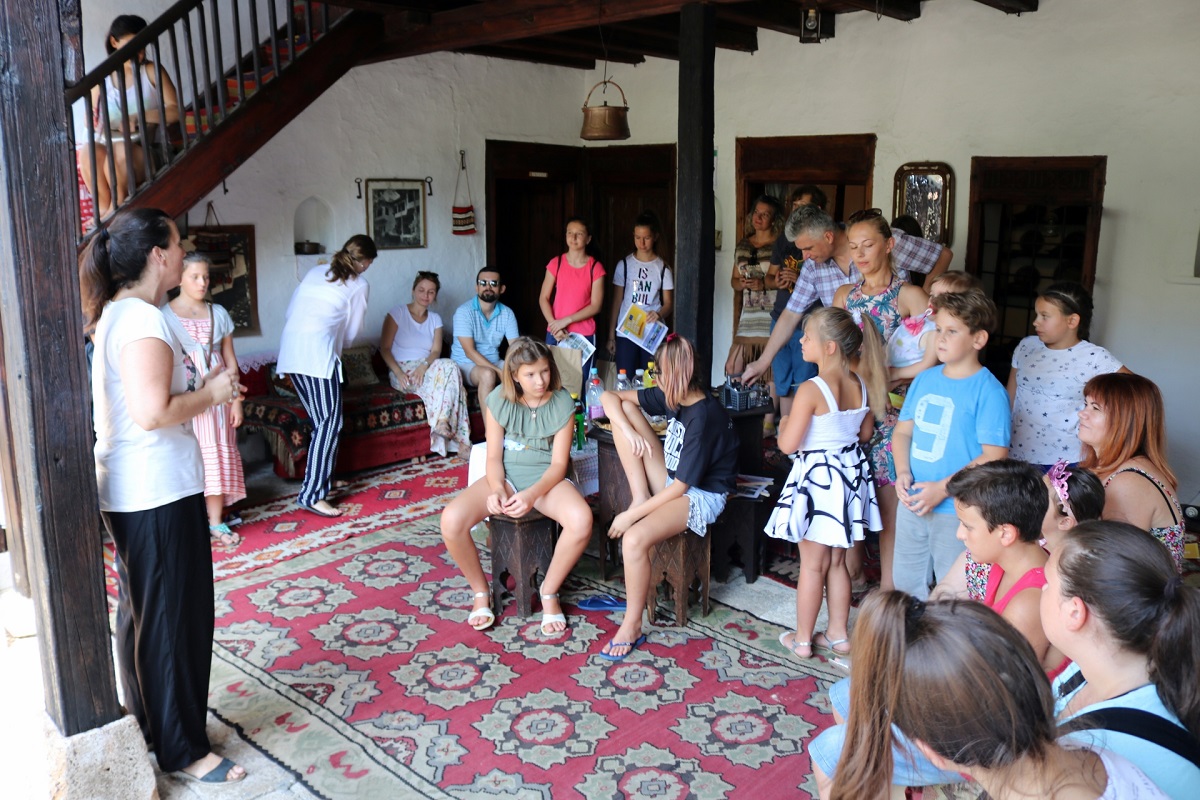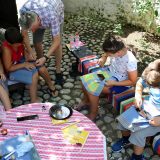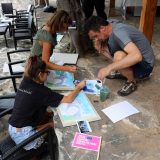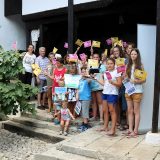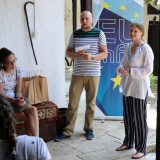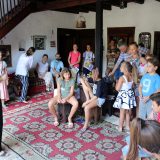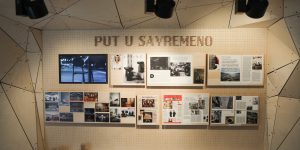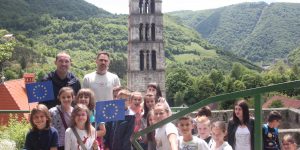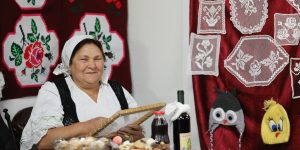Throughout the European Year of Cultural Heritage in 2018, the European Union is celebrating Europe’s diverse cultural heritage to provide an opportunity to discover and explore common heritage in all of its forms. These celebrations are highlighting an important characteristic that creates the identity of a society, namely cultural heritage.
Artistic workshops for children “Cultural Heritage – Space of Freedom” were organized in cooperation with Forum 2024 and the “Mostar – European Culture Capital 2024” team within the FEstival of the New MOstar ENergy (FENOMEN) on 22 July, on the occasion of the anniversary of the reconstruction of the Old Bridge and the candidacy of Mostar for European Capital of Culture 2024.
Mirko Božić, writer and literature professor, who moderated the literature and drama workshop, noted that culture represents the most positive aspect of any country, as well as the means by which a country fits into the cultural landscapes of Europe and the European Union. “Although we are not politically there yet, our culture has been part of European cultural heritage for a long time”, Božić said.
The leitmotif of the workshops was the Old Bridge itself, a world cultural heritage monument and a space of freedom for artistic expression and free thinking on cultural heritage. Mostar’s youngest had the opportunity to paint the Old Bridge, read and dramatize the poem “Emina” by the renowned Aleksa Šantić, whose art and life were inspired by Mostar, as well as to engrave traditional coffee pots.
The participants at the workshops also had the opportunity to listen to a presentation on the European Year of Cultural Heritage and the most attentive students were awarded prizes. For them, it was a great opportunity to express their creativity and enjoy the process of translating the meaning of cultural heritage into artistic expression.
The European Union has provided strong support to cultural heritage in the past and will continue beyond the European Year of Cultural Heritage, given the fact that it is one of the key elements of overall EU policy in the region. Over 2,580 events have so far been organized, marking the European Year of Cultural Heritage, engaging over one million people throughout Europe and enabling them to become closer and more involved with their cultural heritage.
For more information on European Year of Cultural Heritage please visit: http://europa.eu/cultural-heritage/about_en

